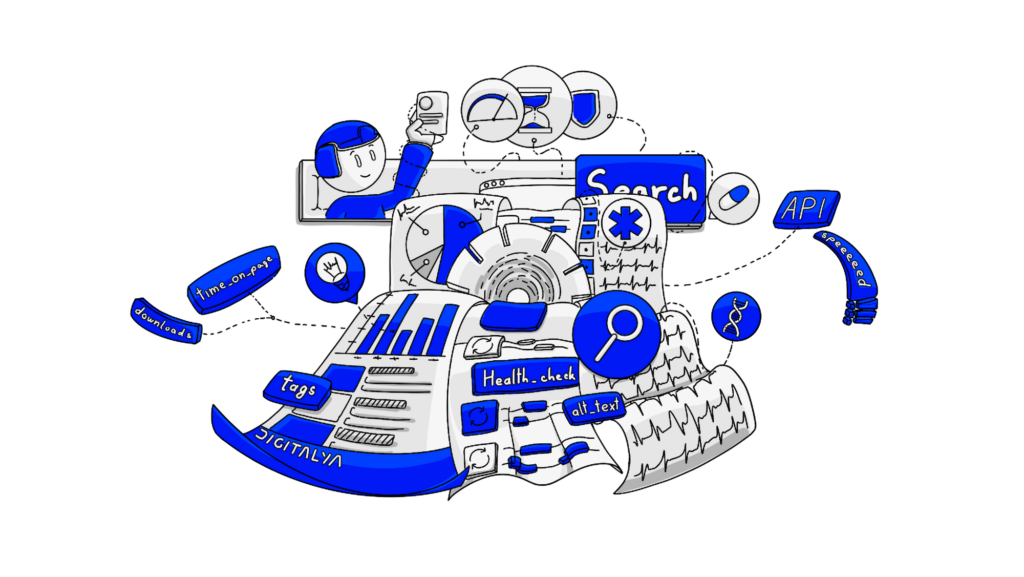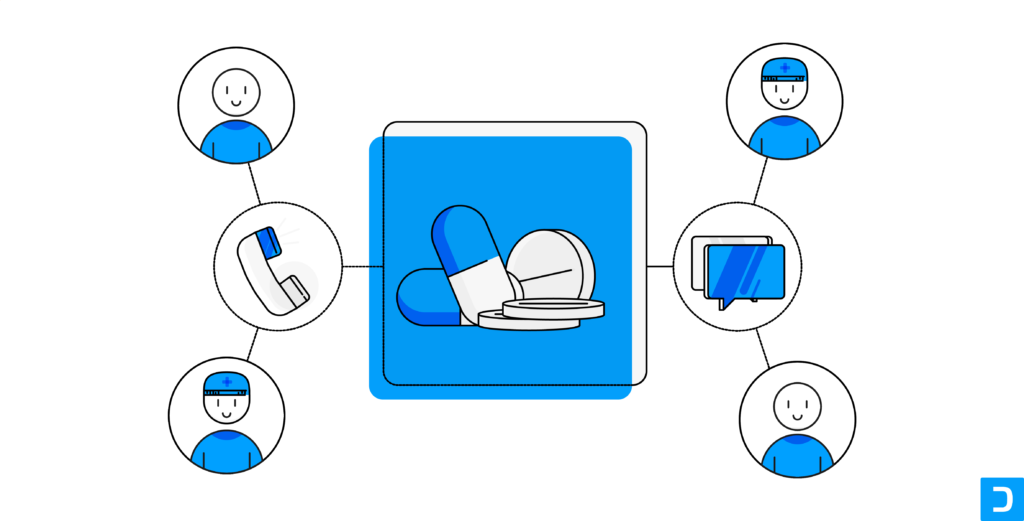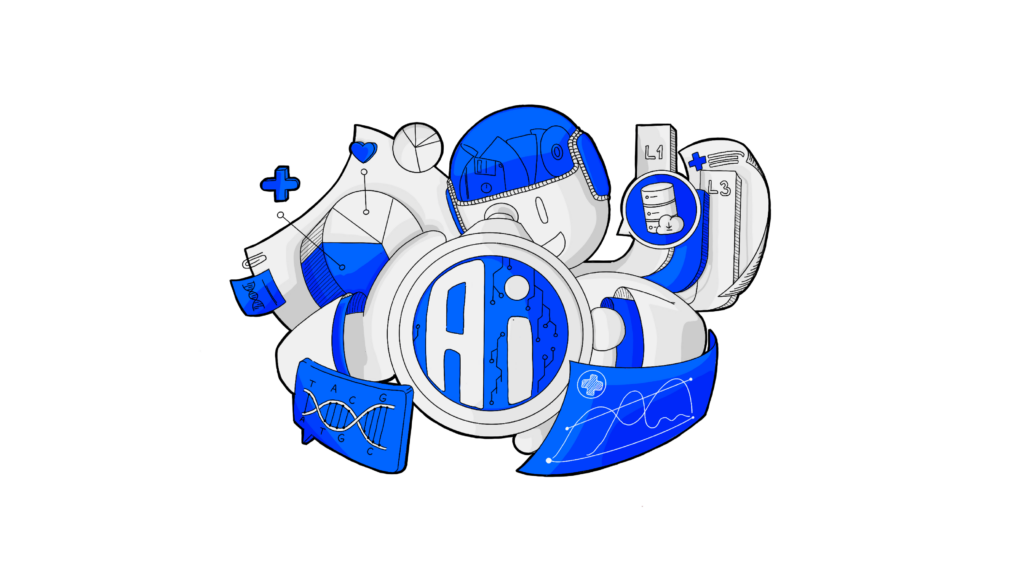Especially if you’re starting out in backend development, you might have to choose between PHP and Nodejs. And as with most things, the dev community is divided between those two technologies. The easiest way to solve the PHP vs. Node conundrum is to weigh the pros and cons for each one and see what fits your projects best.
1. What is Nodejs?
Created in 2009 by Ryan Dahl, Node.js is a cross-platform runtime environment that can execute JavaScript code outside a web browser. With the V8 engine, it delivers stable apps that have great performance.
Generally, it’s believed that node js simplifies software development since web developers can create server and client sides with a single language—JavaScript.
As with anything, node js has its pros and cons. Let’s see what a few of them are:
Why is node js a good choice for software development?
a. Shortens time to market
With node js, web developers can build custom software in a short period of time. This happens because, with node js, you can share code and tests between the client and server sides of the app. This increases efficiency and productivity.
b. Real-time experience functionalities
The event-driven environment of JavaScript allows you to develop high-performance apps with functionalities like streaming, chats, or transactions. This means that you can easily add real-time experiences for your users in your software solutions.
c. Increased flexibility
Most projects need the flexibility to be able to change to meet fluctuating requirements. Node js, with its event-driven model, as opposed to the traditional MVC, allows developers to make changes without requiring too much time. Additionally, there’s MongoDB that streamlines data exchange.
d. Scalability
When used for a microservice architecture, node js is a good choice. This approach encourages building your app as a small suite of services, each with its processes and communicating with more lightweight mechanisms, like an HTTP resource API.
If you break your software into smaller modules instead of using a large monolithic core, it’s easier to stay flexible and have space for growth.
Which are the limitations of nodejs?
a. Callback hell
Since it’s asynchronous, it relies heavily on callbacks—functions that run after each task is finished in the queue. As you can imagine, having many tasks queued in the background, each with its own callback can impact the quality of your code.
b. Unfit for heavy computation tasks
Node js has a non-blocking model, meaning that it answers the client’s call to start a request. Afterward, the task is processed by the time it shoots callback, as the task is ready. When it processes tasks asynchronously, it also executes code on a single thread on an event basis. We’ve just described an event loop.
While this seems fine, the problem is with CPU-bound tasks. When a heavy request enters the event loop, it sets all the CPU available to process it first. The other queued requests are answered later, one by one.
The end result is an overall delay in the loop and general slow processing.

2. What is PHP?
PHP, or Hypertext Preprocessor, is an open-source server-side scripting language. Ever since it was developed in 1996, it’s been pretty popular among app developers. W3Techmade a survey revealing that about 80% of the websites in their database were made with PHP, as compared with 1.4% with NodeJs.
Due to the popularity of content management systems like WordPress, PHP is one of the most popular backend technologies. Used mostly for web application development, PHP has been a great support for developing Laravel.
What are the advantages of PHP?
a. Increased security and flexibility
With the dangers of hacker attacks rising for businesses, PHP wins the security battle. Additionally, regarding flexibility, PHP is compatible with multiple platforms, from Windows to Linux or MacOS.
Even more, development teams have a variety of servers and databases to choose from. This means that they can adapt more quickly to change.
b. Higher loading speeds
Websites built with PHP have higher loading speeds—almost three times faster than the ones built with Python, for example. This is important both for user experience and SEO ranking. Application speed brings along competitive advantages like customer satisfaction and, in the long run, client retention.
c. The PHP community
A survey by Slashdata shows that the PHP community has reached over 6 million members worldwide, making this one of the most popular programming languages. For a custom software development company, this means a pool of candidates to hire PHP developers.
Does PHP have drawbacks?
a. Time-consuming testing
When it comes to error handling, Node wins. With PHP, you don’t have a lot of debugging tools to identify bugs and get real-time alerts. This means that PHP code is more prone to errors and might affect the quality of your project in the long run.
b. Inconsistency
While PHP provides much flexibility, this comes at the cost of consistency. There’s a lack of structure and strict architecture, which allows PHP developers to write their code in the way that is most convenient for them. This means that the same line of code written by two different developers can look entirely different.

3. What is the difference between PHP and node?
Choosing the right technology for your project is never easy. If you’ve narrowed down your options between PHP and Node js, the best next step here is to compare these technologies head-to-head and see which one fits your needs better.
a. PHP vs Node speed — Node wins
What gives node js an edge over PHP when it comes to speed is its asynchronous nature. It doesn’t need to wait for a module to be executed before moving on to the next one. This reduces downtime for web applications and increases user experience.
On the other hand, PHP is synchronous. Each module is executed in order, and the next one won’t start until the previous one isn’t finished.
Therefore, if speed is what you’re looking for. Node.js is your choice.
b. PHP vs Node performance — Node wins
Performance is a crucial metric for application development, as it directly affects user experience. There are a few reasons why Node.js is better than PHP for this as well.
First, as previously mentioned, Node is asynchronous and uses the V8 engine—this accelerates executions and increases performance drastically. Additionally, JavaScript is event-driven, meaning new requests aren’t frozen until the previous ones are completed.
PHP lacks concurrency and executes tasks in order. This way, the entire system is slowed down, which, in turn, affects user experience. Nevertheless, you can speed up PHP by using it with HHVM, but while it will boost up the performance, Node js is still better.
c. PHP vs Node.js popularity — PHP wins
When choosing a technology you’re unfamiliar with, the community should be an important factor. This gives the technology a competitive edge by contributing to libraries and frameworks and maintaining relevance.
PHP has a head-start regarding popularity since it’s been around since 1994. It’s one of the most reliable and successful backend technologies. PHP became very popular, especially because WordPress is using it.
However, even is it was launched in 2009, node js is gaining more and more traction, even surpassing PHP in a poll by Statista, with 34% of developers using it, as compared to 23 for PHP in 2021.
d. Node.js vs PHP learning curve — Stalemate
Regarding learning difficulty, the PHP vs Node comparison is somewhat unfair since PHP is a programming language and Node.js is a framework.
Within its community, PHP has the title of the easiest programming language there is. However, Node.js should be easy to learn for web developers since they should already be familiar with JavaScript, no matter what they previously used for backend development.
e. PHP vs Node js databases — Node wins
Node.js has grown with the arrival of NoSQL databases, it’s in sync with most forms of databases. With the help of JavaScript Object Notation — a data format used to interact with databases — it can work perfectly with NoSQL databases, like CouchDB or MongoDB. Node also has support for graph databases and many libraries if you want to access a SQL database.
Since PHP is an older technology, it works with conventional databases like MySQL or MariaDB. Sure, you can use libraries if you want to work with NoSQL databases, but it’s a tedious process that will consume a lot of time.
When is Node js better than PHP?
There are certain situations where the right choice for web application development is Node.js:
1. You need efficiency in development
If you’re planning to create a dynamic single-page app, you’re probably going to use MongoDB, ExpressJS, or AngularJS. Node is the usual choice when such a technology stack is used, especially for better speed and performance.
2. Speed and consistent callback from servers
Web applications that were developed using Node tend to have a better performance when sending requests to the server consistently. Since it’s asynchronous, it allows a non-blocking execution, which increases the speed and performance in return.
3. Realtime applications
Node.js is the best option if your software solutions require real-time data functionalities because the transmission speeds from the servers to the client-side app are optimal. For example, Netflix, LinkedIn, and Medium use Node.js for their apps.
Who is using Node js?
In a survey from Node.js, it’s been reported that about 68% of businesses that started using Node for their apps noticed an increase in developer productivity and 56% a decrease in development costs.
Here are some examples of companies that moved to Node.js and what changes they noticed:
- Netflix — lowered its startup time by 70%.
- Trello — the single-page app was kept at 250 Kb.
- PayPal — pages started loading 35% faster than before.
- Twitter — the mobile website loads in under 5 seconds.
- Medium — loading time of fewer than 3 seconds, even with large images and content processing.
When is PHP better than Node.js?
If you’re looking for these features for your web application, PHP should be your choice:
1. Centralized server
If you want to allocate a specific centralized server that is not scaled across a wider range of servers, PHP should be in your technology stack. In this case, you’ll probably want to use Linux, Apache, and MySQL.
2. Increased portability
When you use PHP, you have great portability across servers. Additionally, if you use content management systems like WordPress or Drupal, you can have your website up and running quickly.
Who is using PHP?
- Facebook — with HPHPc, performance was improved, and development and deployment processes were simplified.
- Wikipedia — after switching to HHVM in 2014 and halved their page loading times.
- Slack — uses PHP for its backend to maximize workflow efficiency.
- WordPress — PHP is used to interact with databases and retrieve data.
4. Conclusion: PHP vs Node
It’s hard to pick a clear winner in the PHP vs Node debate. Each technology comes with at least an advantage or disadvantage. There is no final verdict that can be given without considering what kind of web application you’re trying to develop.
Besides considering the technical requirements of your project, you should also consider the members of your dedicated team. If their technology stack is compatible with either Node js or PHP, you might want to choose with that in mind.










